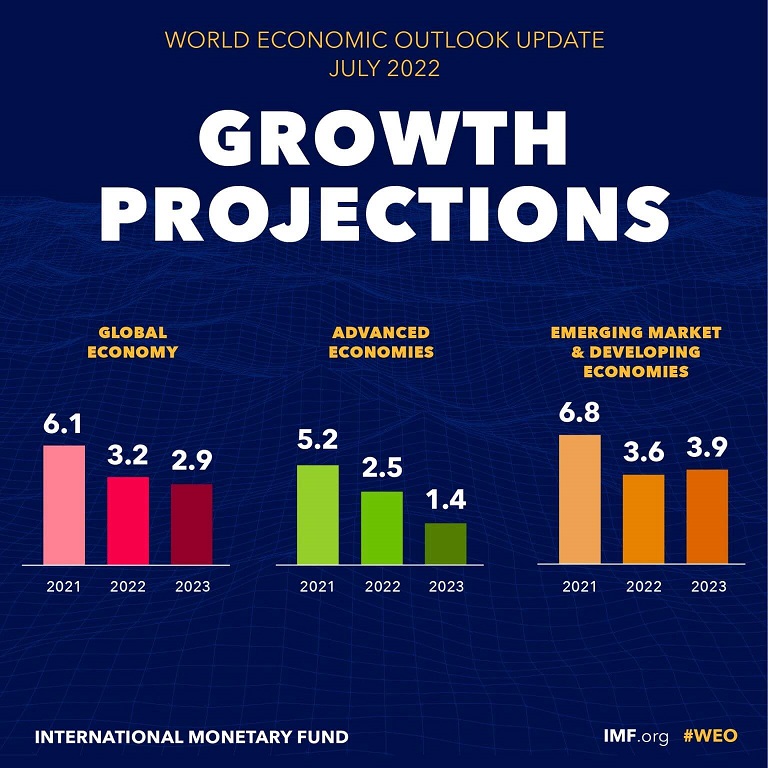The IMF now expects the world economy to grow 3.2% this year, before slowing further to a 2.9% GDP rate in 2023. The revisions mark a downgrade of 0.4 and 0.7 percentage points, respectively, from its April projections.
The Washington-based institute said the revised outlook indicated that the downside risks outlined in its earlier report were now materializing. Among those challenges are soaring global inflation, a worse-than-expected slowdown in China and the ongoing fallout from the war in Ukraine.

“A tentative recovery in 2021 has been followed by increasingly gloomy developments in 2022,” the report said.
“Several shocks have hit a world economy already weakened by the pandemic: higher-than-expected inflation worldwide — especially in the United States and major European economies — triggering tighter financial conditions; a worse-than-anticipated slowdown in China, reflecting COVID19 outbreaks and lockdowns; and further negative spillovers from the war in Ukraine,” it added.
The anticipated slowdown would mark the first quarterly contraction in global real GDP since 2020. A “plausible” but less likely alternative scenario could see global growth fall to around 2.6% in 2022 and 2.0% in 2023, the IMF said, putting global growth in the bottom 10% of outcomes since 1970.
The World Bank last month slashed its 2022 global growth outlook to 2.9% from an earlier estimate of 4.1%, citing similar macroeconomic pressures.
The U.S., China, India lead downgrades
Worsening growth prospects in the U.S., China and India drove the IMF’s downward revisions.
The U.S.’s GDP outlook was lowered 1.4 percentage points to 2.3%, driven be weaker-than-expected growth in the first half of 2022, reduced household purchasing power and tightening monetary policy.
China’s economy was seen growing 1.1 percentage points short of previous estimates, following extended Covid lockdowns and a deepening real estate crisis. The world’s second-largest economy is now expected to grow 3.3% in 2022 — its lowest clip in four decades, barring the initial fallout from the Covid-19 crisis in 2020.
India’s forecast was cut 0.8 percentage points to 7.4%, largely due to less favorable external conditions and more rapid policy tightening.
Meanwhile, the euro zone’s outlook was lowered 0.2 percentage points to 2.6%, though the IMF said greater fallout from the war in Ukraine was likely to hit further in 2023, particularly in the major economies of Germany, France and Spain.
Russia’s economy contracted less than expected in the second quarter despite wide-reaching economic sanctions over its unprovoked invasion of Ukraine, the IMF said. Its 2022 projection was revised up 2.5 percentage points, though its estimated growth rate remains negative at -6.0%.
Global inflation continues to rise
It comes as inflation continues to track higher through 2022, led by rising food and energy prices.
Global inflation is now forecast to hit 6.6% in advanced economies and 9.5% in emerging market and developing economies this year — an upward revision of 0.9 and 0.8 percentage points, respectively.
SOURCE: CNBC







